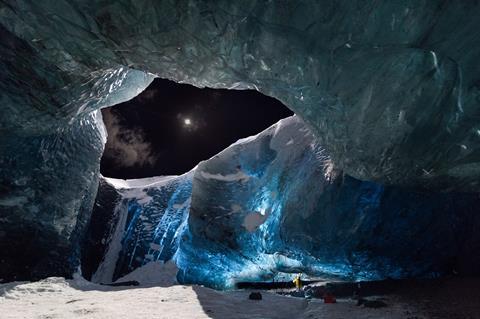“You cannot stay unengaged, you cannot remain unmoved by the sight of nature in all her glory”

Frozen Planet II, BBC1
”There was a stunning piece of footage of killer whales tipping a poor Weddell seal off its ice floe, using a mixture of cunning, science and teamwork. It was magnificently horrible to watch…Perhaps some of us now take for granted how masterly these programmes are, excellence expected as standard. This series comes 11 years after the first Frozen Planet, using cold-proof cameras set to run for three years and time-lapse technology. It was four years in the making and is extraordinary, with breathtaking scenes of playful polar bear cubs and Siberian tigers hunting.”
Carol Midgley, The Times
“This latest offering from the crack team and Sir David accomplishes its goal as effectively as ever; it makes us, in the best way, children again. You cannot stay unengaged, you cannot remain unmoved by the sight of nature in all her glory, or unawed by the sight of creatures honed by countless years of evolution to survive the apparently unsurvivable. Your eyes widen involuntarily as the scenes of howling gales, frozen peaks and troughs, and the animals wrenching a life from them sweep past.”
Lucy Mangan, The Guardian
“Filmed in ultra-high definition, making full use of drone technology that didn’t exist a decade ago, this is wildlife imagery so crisp and clear that every time I gasped, I expected to see my breath billow out in chilly clouds. Without doubt, the most astonishing clips were those of killer whales hunting seals. With the balletic co-ordination of a synchronised swimming team they flicked their tails to create a minor tidal wave. The seal was washed into the water and snapped up. Incredibly, in the immense expanse of ocean, the crew had tracked down a family of whales that appeared in the first Frozen Planet. Other segments leave you breathless. It was impossible to watch a grizzly bear hunting musk ox calves without being both fascinated and appalled.”
Christopher Stevens, Daily Mail
“There is perhaps a rare dip in footage quality when it comes to the Siberian tiger, mostly captured on remote cameras evidently positioned for months and even years to catch glimpses of one of the world’s rarest big cats. With less than 500 left in the wild, it is extraordinary to see this majestic giant tracking the scent of prey that has long moved on. The episode’s compulsory heartbreak comes during a grizzly bear attack on a herd of musk ox with newborn babies, although again, this is followed by something rather more lighthearted: the absurdity of male hooded seals and their inflatable noses attempting to woo females in the Arctic Ocean.”
Rachael Sigee,The i
“It’s a gruelling, frustrating process, but they eventually capture a massive calving event. “It’s so exciting, and you get the adrenalin,” is the verdict of the drone operator. “And then afterwards, there’s a bitter sweetness to it, as you realise that’s another piece of ice that’s slowly raising the sea level.” The sight of a helicopter next to this glacier, a tiny but noisy speck against the white, is a compelling symbol of the cognitive dissonance required in our changing world…There is no doubt that the stark beauty of the frozen Earth has never been better captured. Filmmaking techniques involving “racer drones”, satellite imagery, and time-lapse cameras installed for three years create a legacy portrait of a world that may be gone in just a few decades. But for all the beauty, the thrill of seeing stories from the natural world is somewhat diminished here. Tigers and bears and whales and penguins: this feels more like a greatest hits compilation than a documentary that has something new, and pressing, to say.” Nick Hilton, The Independent
Munich Games, Sky Atlantic
“After two episodes there are plenty more ingredients in a nicely thickening soup – terrorism, drugs, blackmail, adultery, inter-agency rivalry, the Holocaust – with an extremely light dusting of football. The 1972 Olympics, oddly, are hardly mentioned, but for the brooding presence of the stadium with its futuristic bat-wing canopy…Slightly surprisingly, Munich Games is a gripper. Multilingual co-productions can have a saggy aura of nowhereness about them. Not so here. The languages deployed are German, Hebrew, Arabic and, whenever the higher-ups need to converse internationally, English. There’s also a thicket of acronymese to grapple with…One slightly bum note is a cartoon Slavic baddie extorting money from the owner of the Israeli football team. Also, when Maria goes undercover among angry protestors, her comms would probably involve discrete wireless airpods rather than an iBrick held all too conspicuously to her hoodied lughole. Still, this is taut, pacy and, at only six episodes, commendably terse.”
Jasper Rees, The Telegraph
“Aviram has created something as hard-boiled if not as unremittingly masculinist as her 2015 Israeli spy drama Fauda, and much more intriguing. We don’t know yet what – if anything – the beautiful game-ruining cabal of Munich-based anti-Zionists want, nor indeed if they exist, but my guess is their ambition is more than getting the VAR decision that cost West Ham a draw at Stamford Bridge last weekend overturned.”
Stuart Jeffries, The Guardian
House of the Dragon, Sky Atantic
“Some fans of Game of Thrones may have wondered whether House of the Dragon was worth sticking with. Assuming they were still around to watch episode four, they presumably now feel that their doubts have been answered. King of the Narrow Sea was a pivotal instalment that clearly sets us up for some spine-tingling conflict to come: families fracturing, bitterness hardening, enmity intensifying at every turn.”
Michael Deacon, The Telegraph
Stolen: Catching the Art Thieves, BBC2
“The film was helped enormously by its access to phone recordings and footage from the time. This may have been a case of “artnapping” rather than kidnapping, but the stakes were high and the methods of investigation similar – even down to a demand for “proof of life”, which in this instance meant Polaroids of the paintings, rather than a kidnap victim holding up a copy of today’s paper.”
Anita Singh, The Telegraph
Simon Reeve’s South America, BBC2
“Reeve’s programmes are hard to categorise: he covers the environment, politics and social anthropology. He has an easy way with people, and is enthusiastic but not annoyingly so. When he says, “Oh my goodness, the most incredible views!” as he gazes down on Venezuela from above the clouds, it’s entirely the correct reaction. Some of the situations he gets himself into are possibly a bit dicey, but Reeve doesn’t over-egg it.”
Anita Singh, The Telegraph





























No comments yet